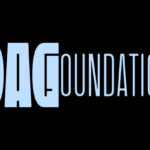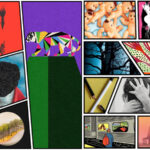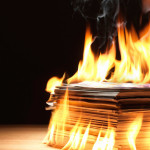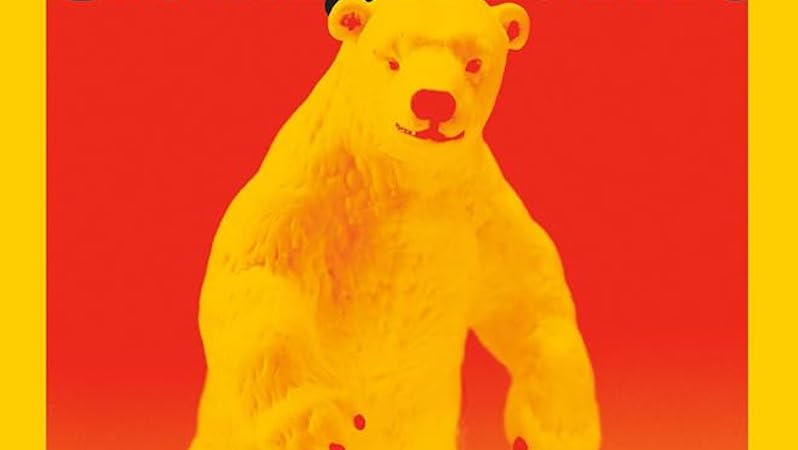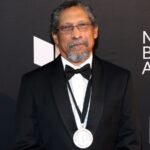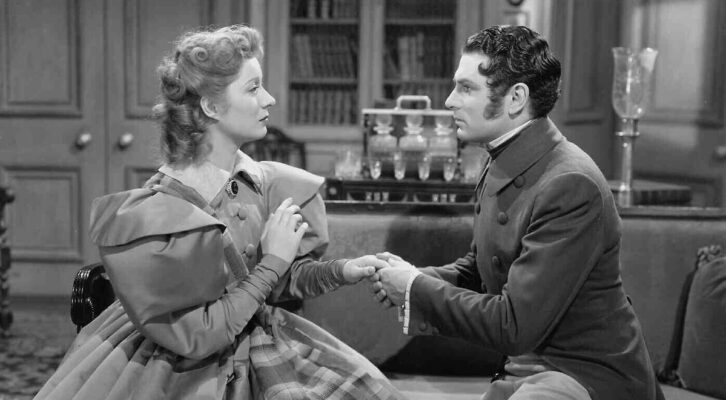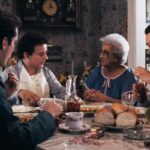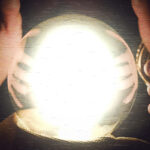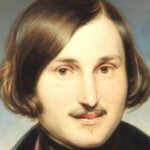Simpler Times: Janet Malcolm at Jon Stewart and Stephen Colbert’s Rally to Restore Sanity
On the Conflation of Liberal Comedy and Political Organization
Comedy Central on the Mall
On October 31, 2010, Peter Clothier, a 74-year-old author and retired professor, posted an entry on his blog, called The Buddha Diaries, about the wonderful day he and his wife, Ellie, had spent at the Jon Stewart and Stephen Colbert Rally to Restore Sanity and/or Fear on October 30 at the Mall in Washington, D.C., between noon and 3 pm. “We stood there trapped for a good two hours, surrounded by people who, like us, had showed up. We saw nothing, heard nothing of what was happening on the stage. It was great!” Clothier writes. He and Ellie had risen at 5:30 am to catch a 6:45 Amtrak train from New York, which should have gotten them to the rally in time to not see and not hear for the full three hours. But they were detained by a horrendous and dangerous crush of people in the Washington Metro.
“The Metro system was utterly unprepared for the invasion,” Clothier writes. The station was “a mob scene.” “People were waiting in lines ten deep to board,” and train after train went by “so full that not one single person could squeeze aboard.” However, with the exception of one angry man, who was “quelled by fellow passengers,” everyone kept his frustration in check and no one behaved badly.
Joseph Ward, a student at the University of Illinois, had been on a bus all night when he entered the little hell in the Washington Metro. And yet—as he wrote in the Daily Illini, where he is an assistant news editor—“I could not muster up the courage to get pissed at my situation. How could anyone not be positive?” He went on to describe the crowd of “young, old, black, white, hippies, yuppies and ex-servicemen pushing their comrades in wheelchairs” who “understood why they were there.” When Ward finally boarded a train it was
packed beyond belief to the point where the conductor would come over the loud speaker and remind people not to panic, push or get on a car that was already at maximum capacity. I felt like telling the conductor that his points were moot, that this was the sanest population in the western world he was addressing and that we would not buy into his Colbertian fear mongering.
After he got off the train Ward revised his opinion of the conductor’s “points” (“Turns out, he may have been on to something”). “I feared for my life when the crowds uncontrollably pushed me to within six inches of the train as it began to speed away from the station.” At the rally, Ward, like the Clothiers—and almost everyone else there—couldn’t see or hear what was going on onstage. (There were a few, but hardly enough, TV monitors on the Mall.) For a moment his determination to be positive even if it killed him faltered. (“Uneasiness began to settle over the crowd, which was virtually stuck in its position.”) But he ended his story on a cheerful note, praising the musical numbers and comedy skits he had not seen or heard.
It was as if the sunny Stewart had sprayed the place with his aura.I did not take the test of character in the Metro—I had come to Washington the night before and had time to make my way to the rally on foot. And I flunked the endurance test on the Mall. After a few minutes of standing in radical proximity to the sanest people in the Western world, I managed to make my way back to the street and then joined the people who were sitting on the steps of the National Gallery. From there one could see the phalanx of battleship-gray portable toilets that lined the Mall, and, beyond them, the Mall itself colorfully glistening with trapped people.
Everyone I talked to during and after the rally said it was great. It was as if the sunny Stewart had sprayed the place with his aura. Not seeing or hearing didn’t matter. What mattered was being there and, proleptically, having been there: several people characterized the event as a “historical” occasion. Evidently over two hundred thousand people came.
In the final minutes of the show Stewart gave a speech (I saw it on C-SPAN the next day)—“I thought we might have a moment, however brief, for some sincerity, if that’s okay”—in which he explained the point of the rally, in case anyone had missed it. Stewart confirmed that we had all come to Washington in order to congratulate ourselves on our decency and rationality. We were at a giant preen-in.
To illustrate our collective fineness, Stewart used the image of cars entering a tunnel under a river one by one, and of drivers politely deferring to each other: “You go. Then I’ll go. You go. Then I’ll go.” “Sure, at some point there will be a selfish jerk who zips up the shoulder and cuts in.” But he—like the angry man in the Metro station—“is rare and scorned.” The rest of us are made of the right stuff:
We know instinctively as a people that if we are to get through the darkness and back into light we have to work together. And the truth is, there will always be darkness. And sometimes the light at the end of the tunnel isn’t the Promised Land. Sometimes it’s just New Jersey.
Nice line. But what is he talking about? How do you work together in a car in a tunnel?
Stewart’s and Colbert’s following is largely liberal, but their rally was nonpartisan. “Most Americans don’t live their lives as only Democrats or Republicans or liberals or conservatives,” Stewart said.
Americans live their lives more as people that are just a little bit late for something they have to do, often something they do not want to do. But they do it. Impossible things every day that are only made possible through the little reasonable compromises we all make.
We had all come to Washington in order to congratulate ourselves on our decency and rationality.What compromises? (Didn’t this kind of blurry apoliticality give us George W. Bush via Ralph Nader in 2000?) Stewart made no mention of the coming elections, nor did he blame the right for the darkness we live in now. He blamed the press—“the country’s twenty-four-hour politico pundit perpetual panic conflictinator”—for making things look worse than they are. “If we amplify everything, we hear nothing,” he said, and went on,
There are terrorists and racists and Stalinists and theocrats, but those are titles that must be earned, you must have the résumé. Not being able to distinguish between real racists and tea baggers or real bigots and Juan Williams or Rick Sanchez is an insult, not only to those people but to the racists themselves who have put in the exhausting effort it takes to hate.
David Carr, after quoting these words in The New York Times of November 1, told a brutal truth: “All due respect to Mr. Williams and Mr. Sanchez, not many people know or care who they are.” Carr further pointed out that
Most Americans don’t watch or pay attention to cable television. In even a good news night, about five million people take a seat on the cable wars, which is less than 2 percent of all Americans. People are scared of what they see in their pay envelopes and neighborhoods, not because of what Keith Olbermann said last night or how Bill O’Reilly came back at him.
To have seen them in real life, or even on a live video monitor, might have felt inauthentic, perhaps even transgressional.Of course, the 200,000 people who came to the Rally to Restore Sanity and/or Fear are among the 5 million who do watch cable TV—specifically, The Daily Show and The Colbert Report. The scriptwriters assumed this was the case, and the rally skits were filled with references and allusions that only watchers of these shows would grasp. Who but a watcher of his show would know what Colbert was supposed to represent as he crazily pranced around the stage? Stewart’s bland rally persona similarly drew on the resonance of his sharper Daily Show image. No doubt it was an accident of organization that required most of the people at the rally to defer their enjoyment of the stage show until they could watch it at home on a screen. But it couldn’t have been a more fitting accident. The world of TV is the world that Stewart and Colbert inhabit. To have seen them in real life, or even on a live video monitor, might have felt inauthentic, perhaps even transgressional.
“An incredible gathering here in the Mall today,” Stewart said after showing clips of “real stories of momentary unreasonableness,” such as that of the irate flight attendant who got off his plane on an exit chute after a passenger dissed him. Stewart beamed at the crowd and went on, “But I think we all know that it doesn’t matter what we all say and do here today. It matters what is reported about what we said and did here today.”
On their late-night shows, Stewart and Colbert brilliantly satirize TV news and news commentary. At the rally they had to struggle with the lack of a subject to satirize. There was some fun with the Colbert character as an embodiment of irrational fear (Stewart: “FDR once said, ‘The only thing we have to fear is fear itself.’” Colbert: “Yes. But just twelve years later he was dead.”) But mostly there was more gesturing toward comedy than comedy itself.
If there is one thing that liberal Americans can legitimately pride themselves on it is their talent for creating irreverent signs. Who will forget, from the peace rallies of yesteryear, WHEN CLINTON LIED NO ONE DIED or THE ONLY BUSH I TRUST IS MY OWN? Here are a few examples from the Rally for Sanity and/or Fear:
WE HAVE NOTHING TO FEAR BUT FEAR ITSELF AND SPIDERS
MODERATION OR DEATH
JEW AGAINST INVOKING HITLER FOR POLITICAL POINTS
ATHEISTS FOR MASTURBATION
GAY MALAYSIAN MUSLIMS FOR SARAH PALIN
YOU KNOW WHO ELSE WAS A WHITE SOX FAN? HITLER
SUPPORT SEPARATION OF HEAD FROM ASS
On October 2, I’d attended the One Nation Working Together rally at the Lincoln Memorial, sponsored by, among others, the NAACP, the AFL-CIO, and the Sierra Club, and supported by groups that included the National Urban League, the National Baptist Convention, the Gay and Lesbian Task Force, and the Communist Party USA. The signs there had a different character:
GOOD JOBS NOW
STOP CORPORATE GREED
GAY, LESBIAN, BISEXUAL AND TRANSGENDER EQUALITY
I WANT SINGLE PAYER HEALTH CARE GET OUT AND VOTE FOR DEMOCRATS
The October 2 rally was a sober affair. The crowd wasn’t very large. (I noticed many minority and working-class families with children.) Most of the speakers (visible and audible on large TV monitors) were earnest and un-practiced. They were teachers and unionists and secretaries and veterans and carpenters and students and waitresses, as well as a few politicians like Al Sharpton, who spoke well. But when he exhorted the audience to vote—“We better get ready for the midterm exam”—there was only tepid applause.
Walking back to the train station on Constitution Avenue, my spirits lifted when I saw a man in an elaborate Colonial costume. I went up to him and asked him what his role in the rally had been. He gave me one of the most incredulous looks anyone has ever given me in my life. Then he stiffly informed me that he was the leader of a guided tour of Washington.
The New York Review of Books (NYR Daily), 2010
__________________________________
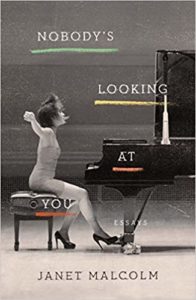
Excerpted from Nobody’s Looking At You: Essays by Janet Malcolm. Published by Farrar, Straus and Giroux on February 19th, 2019. Copyright © 2019 by Janet Malcolm. All rights reserved.




